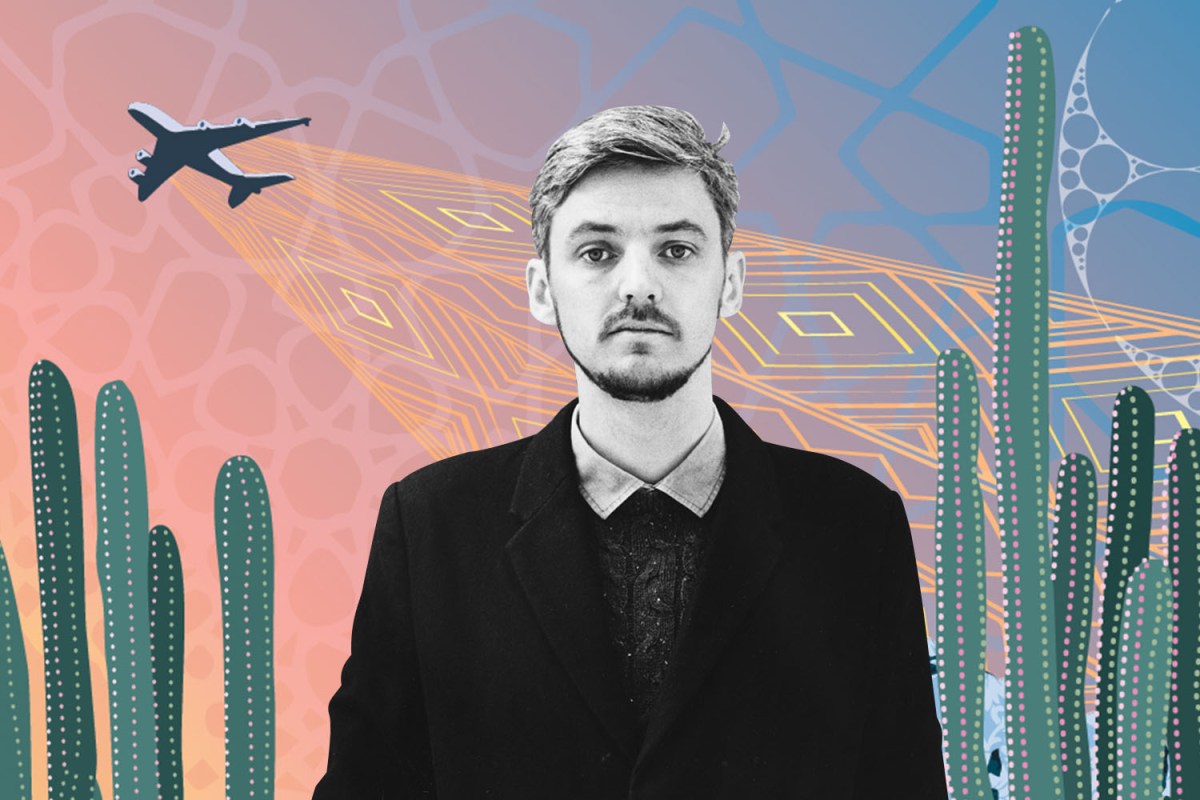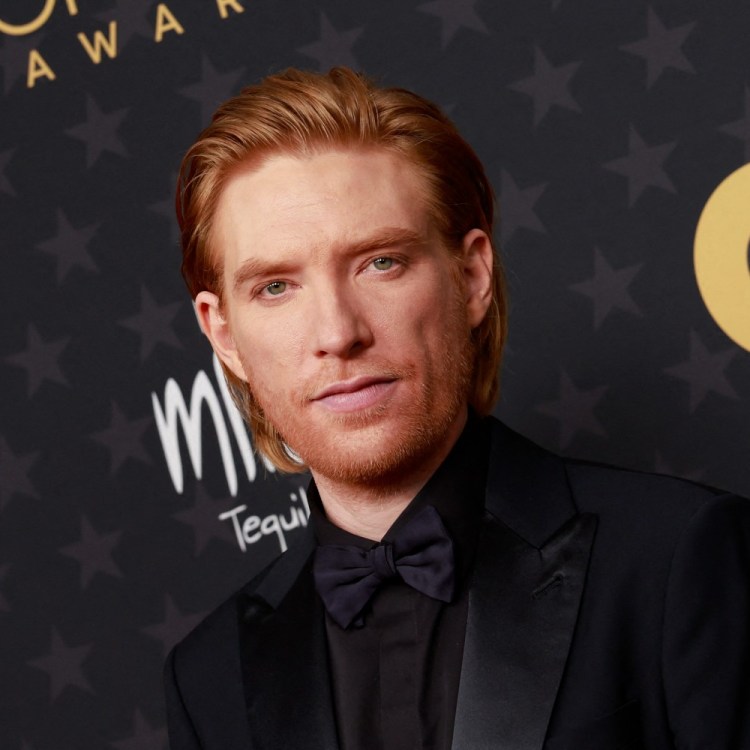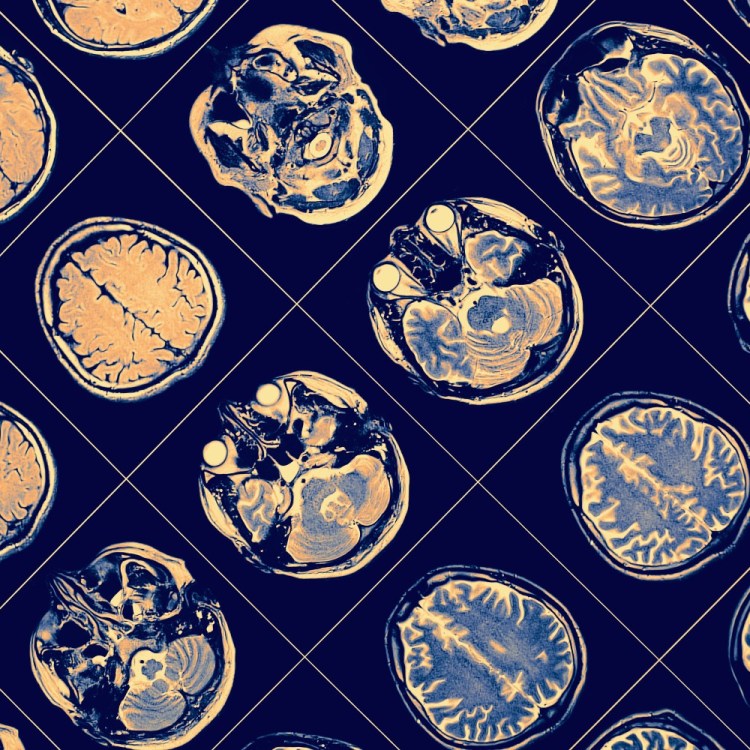Rob Doyle’s Threshold is the great drug novel of our time. Its story is superficially autofictional, à la Ben Lerner and W.G. Sebald. A young Irish writer named Rob travels the world, parties with friends, takes underwhelming literary pilgrimages and consumes every illicit substance save heroin and amyl nitrate. Crucially, Doyle is self-aware: he knows you rolled your eyes at that last sentence. Also crucially, his book is generous and honest as few contemporary fictions are these days. (The honesty is infectious. An earlier draft of this piece derailed itself with your humble reviewer’s asides on his experiments with acid and DMT.)
Threshold is composed of discrete chapters set in different cities, with interstitial letters Rob sends an unnamed former lover. The novel’s filament gathers slowly, almost unnoticed. The narrator is like a handsome day-drinker three stools down the bar who turns your friendly banter into an all-night bender. Not coincidentally, Rob Doyle also looks like a handsome day-drinker. He’s 37, Dublin born and raised. While he lives mostly in Berlin, the coronavirus pandemic has grounded him in Rosslare Harbor, a rural patch on Ireland’s southeast coast.
He started Threshold six years ago, soon after completing his debut Here Are the Young Men. (A short story collection, This Is the Ritual, appeared in 2016.) First he published an essayistic story about foraging magic mushrooms in Dublin’s Phoenix Park. As he told me on a recent Skype call, he found the narrator’s voice “capacious” enough to hold Doyle’s other obsessions — Georges Bataille, meditation, Roberto Bolaño, psychedelics. This voice was “a cast he could pour all these ideas into.” Doyle could also see the shape of the book. It would require a lot of travel. He packed a bag and for the next few years lived in Paris, Kassel, Bangkok, Costa Brava, Calcutta and elsewhere.
Related: Read an excerpt from Rob Doyle’s Threshold
Most everyone writing a book with this method would produce unreadable drivel. Not only is travel writing fraught with issues of class and appropriation, but writing about psychedelics can be flat-out boring. “Writing a drug trip is like talking about a dream,” Doyle says. “The dream is always of great interest to the person who had it, and of significantly less interest to everyone around them.”
Before getting into how Threshold solves these problems, let’s ask: What does a great drug novel look like? For one, it’s shaped by its subject. (Form follows psychopharmacology.) Even when it works, it ages poorly. The scattershot pyrotechnics of William S. Burroughs’ 1950s work seems cast in amber, as does the go-go ’80s energy of Jay McInerney’s Bright Lights Big City and its piles of “Bolivian Marching Powder.” Irvine Welsh’s Trainspotting, from 1993, considered heroin and Edinburgh’s boot-level muck through a rhizomatic novel-in-stories. (It probably holds up.) More recently there’s Tao Lin’s Taipei and Ottessa Moshfegh’s My Year of Rest and Relaxation, whose anomic twentysomethings ingest pills to feel (Lin) or feel nothing (Moshfegh).
Great drug novels are sui generis; they don’t resemble a lineage so much as a family of orphans. Asked about which narratives informed Threshold, Doyle cites Terence McKenna’s writing and videos, Geoff Dyer’s ecstasy-and-techno swoon Paris Trance and De Quincey’s urtext Confessions of an English Opium-Eater. “I remember laughing out loud,” he says, regarding Confessions. “Its psychological insight and self-assassination felt so modern.”
Threshold innovatively merges the first-person intimacy of memoir, journalistic research, and the deathless hedonism of untethered youth—with a light touch. Take the last paragraph of the section titled “Hotel.” Rob has accidentally overdosed on ketamine: “I don’t really have beliefs, but I do have an imagination, and now I imagine that I did die there, in that New Delhi hotel room, choked on vomit far from anyone who knew my name–and that I am there still, in that infinite instant, and all of this, the life that has happened since, is nothing but the judgment I have passed on myself, a torrent of visions ramified from who I was into what I have dreamed myself to be.”
The next page begins: “I agree with you about writerly self-pity.”
When I ask about the theme of self-annihilation, Doyle mentions the popular Emil Cioran quote, “A book is a suicide postponed.” (The Romanian philosopher is another obsession.) For all of Threshold‘s talk of death, the Cioran line highlights its optimistic streak. The narrator masks his self-destruction until the mask slips. Without spoiling it, the book becomes its own redemption. For Rob and for Rob Doyle.
But how? Why does the novel work so well? It’s not just for the incredible scene in Berlin’s famous club Berghain.
I think the answer is in Rob’s preference for psychedelics. The author notes their growing acceptance as part of normal people’s everyday experience. One takes psychedelics looking for expansion and new connections. They’re not drugs of refuge. They’re favored, rather, by optimists: adherents believe the future will be better than the present.
This may be difficult to hear during our deafening and terrible present. A few months ago, I first read Rob’s odysseys as ones of freedom and possibility. Now it’s fantasy. But it isn’t romance, nor is it slight. Doyle says near the end of our call, “Despite all the humor and the jokes, there’s a real psychic struggle expressed through this book.”
Humor, psychic struggle, the world, and all those drugs. In our new reality of high indoors, we look to books to take us somewhere. Threshold takes us everywhere.
This article was featured in the InsideHook newsletter. Sign up now.
























